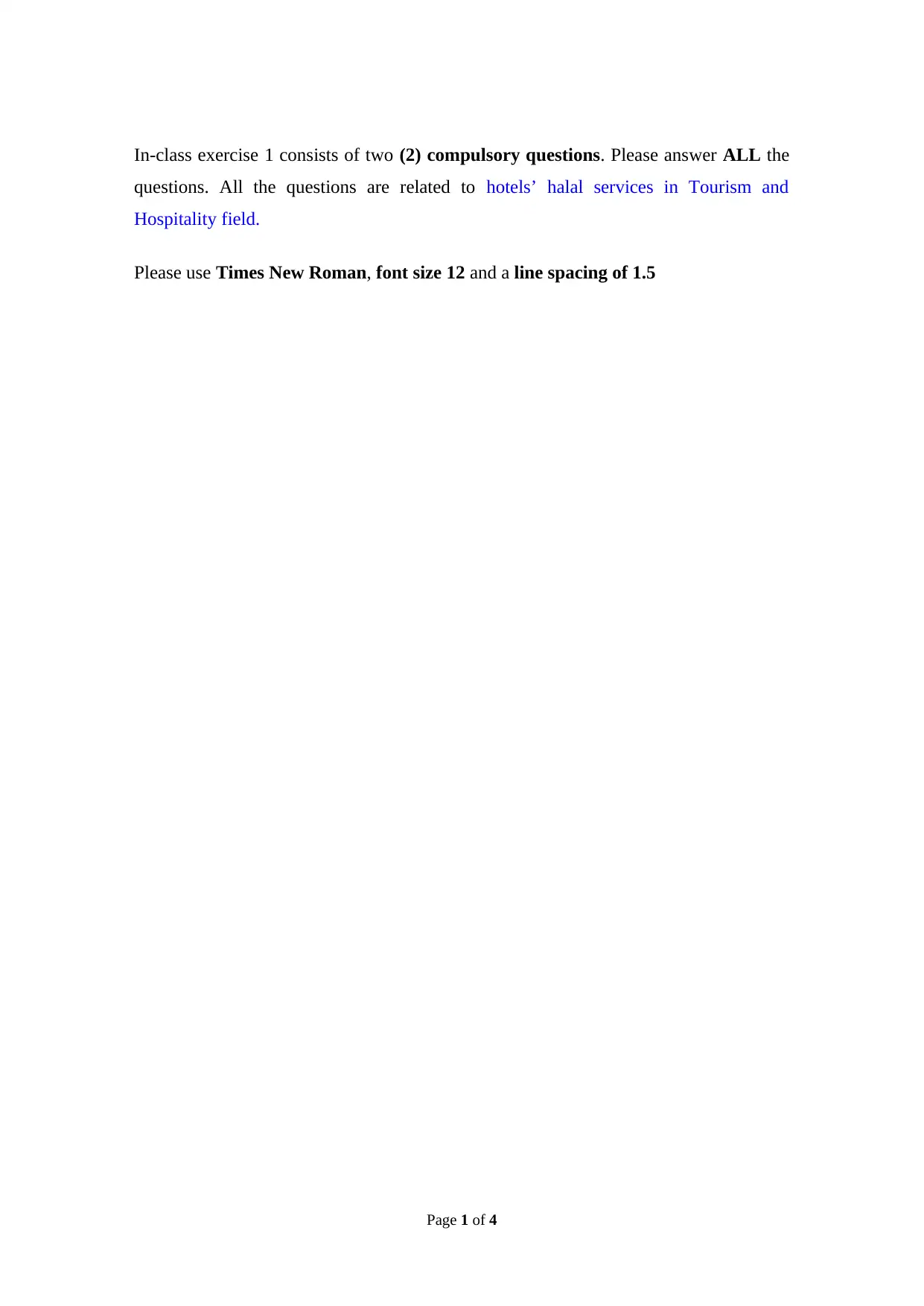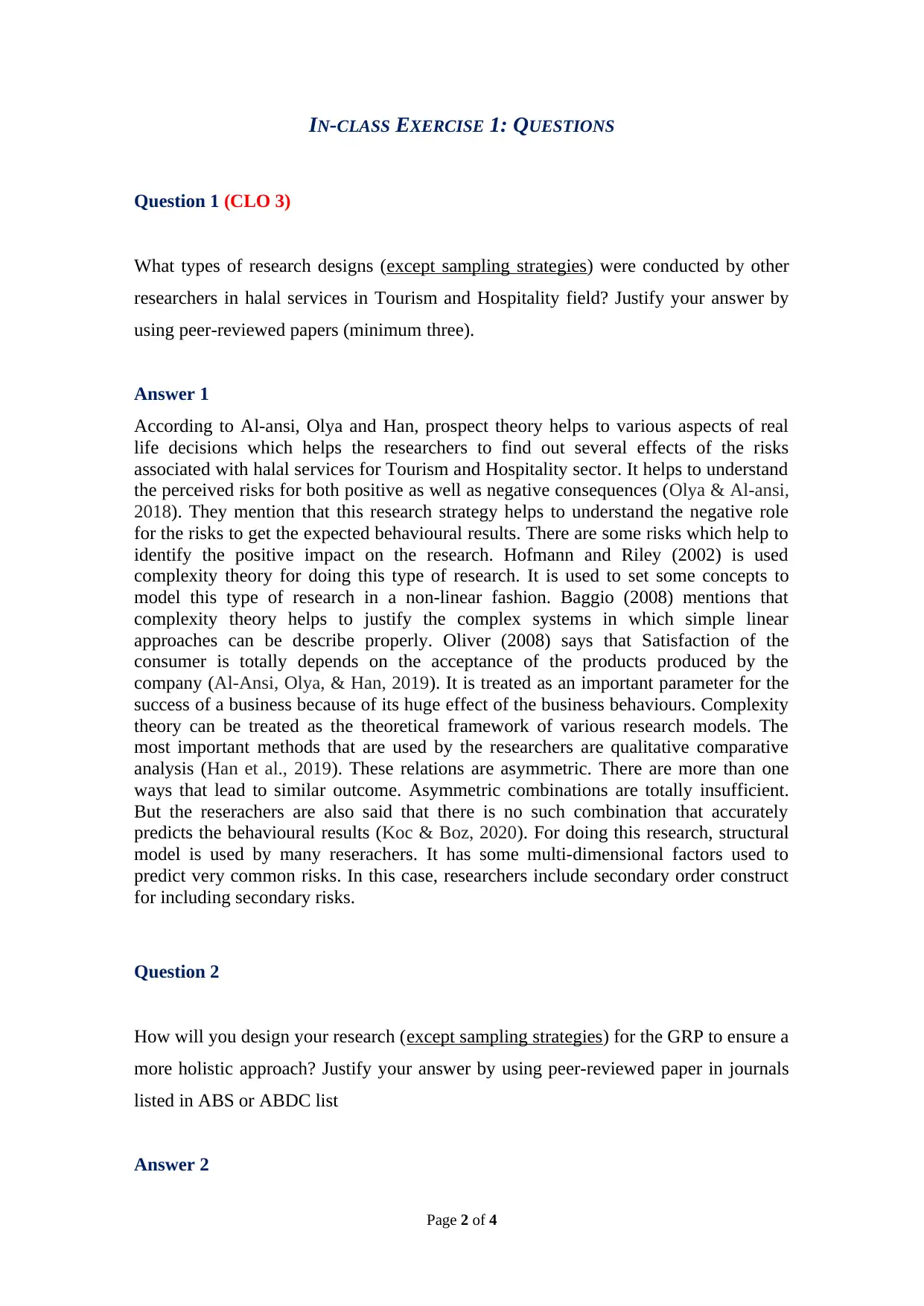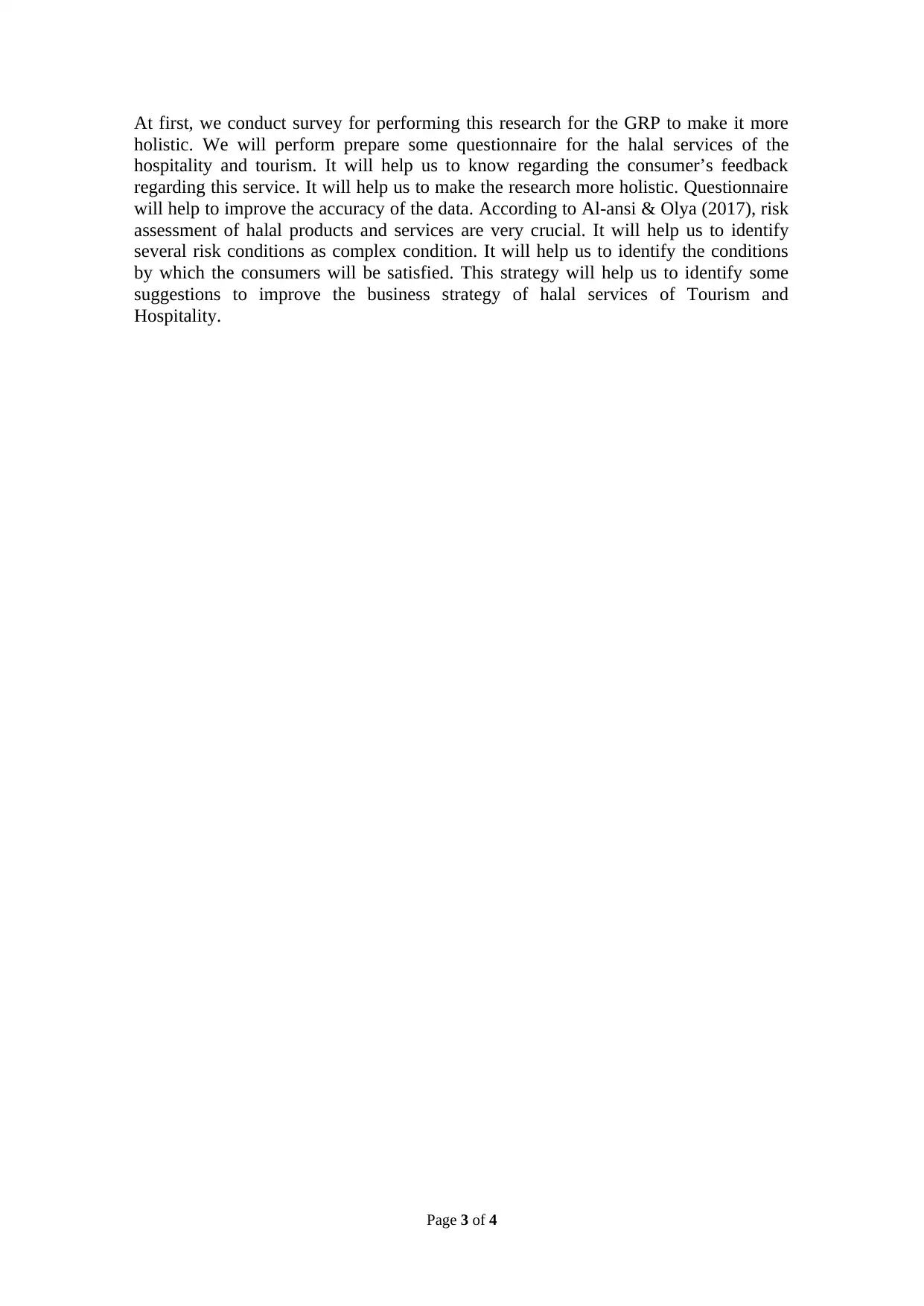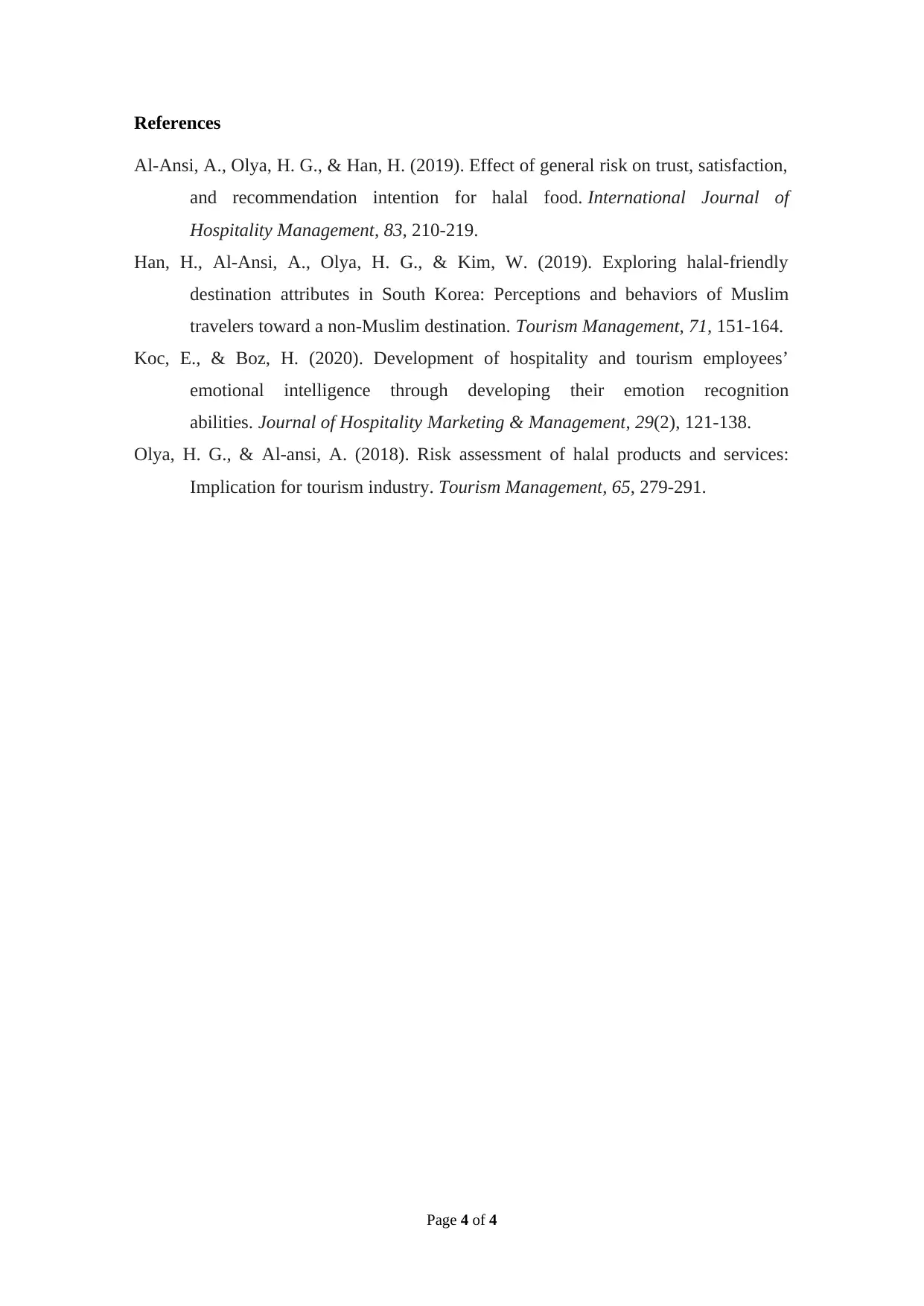Research Designs for Halal Services in Tourism and Hospitality Field
VerifiedAdded on 2022/08/17
|4
|793
|7
Homework Assignment
AI Summary
This in-class exercise focuses on research related to halal services in the tourism and hospitality field. The assignment requires students to identify and justify different research designs (excluding sampling strategies) used by other researchers in this field, using at least three peer-reviewed papers. The answer highlights the use of prospect theory, complexity theory, and qualitative comparative analysis in understanding consumer behavior and risk assessment in halal services. The second question asks students to design their own research for the GRP (Group Research Project), focusing on a more holistic approach, again excluding sampling strategies. The student proposes conducting surveys to gather consumer feedback on halal services, emphasizing the importance of risk assessment and the use of questionnaires to improve data accuracy and identify areas for business strategy improvement. The student references several peer-reviewed papers to support their answers, demonstrating an understanding of relevant research and methodologies in the field of halal tourism and hospitality.
1 out of 4









![[object Object]](/_next/static/media/star-bottom.7253800d.svg)